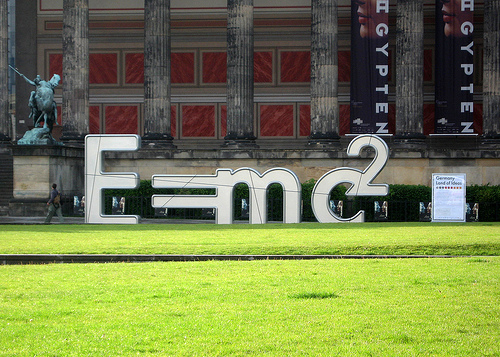Published on
Student Relativity Reformulated

In a recent article by Frank Palatnick, a new view of education was proposed. Mr. Palatnick suggested that Einstein’s theory of relativity, E=mc^2, could be applied to an understanding of student learners by replacing the physics variables with educational and psychological variables.
In this new view, Mr. Palatnick proposes E=education, M=mind and stands for facilitating the mind’s comprehension. Finally, C=collective compassion and is a variable designed to honor the knowledge and learning the student brings to the educational process. Mr. Palatnick suggests that we set MC to the power of infinity to indicate that this process never stops. I would like to suggest some minor alterations to Mr. Palatnick’s new educational equation.
I agree with E = education in his equation but Mr. Palatnick suggests that the goal of education is to help students understand concepts and use them for positive social change. I struggle with this stated goal of education. I do believe that higher education should facilitate positive social change but I believe we can go deeper in terms of “comprehending concepts”.
I think the goal of education is to facilitate the development of a lifetime learner who is competent in the skills of critical thinking, analysis, and creativity. I believe the student should be at the center of a process which facilitates creation. This takes the form of creating income, ideas, interventions, social change, knowledge, and interaction. In order for this creative or adaptive process to happen by necessity the student will further develop their comprehension of ideas. In my opinion comprehension is simply the by-product of the maturing acquisition and application of knowledge. In this regard, consider the levels of learning in higher education: Associates degree = introduction to higher learning, bachelors = competence in a discipline, masters = mastery and teaching of a discipline, doctorate = creating new knowledge. All levels should contain pushing the student to facilitate positive social change.
So my reformulation of Mr. Palatnick’s formula might look something like: Education = Maturation x (Creativity + Collective Compassion)^infinity.
One might suggest that my view of Mr. Palatnick’s formula really only applies to the traditional view of the student and that it would be difficult to apply to the adult learner. There are many circumstances in which an adult or non-traditional learner may seek higher education so they can gain certification or an Associates degree for promotional purposes. One could consider the Associates degree an introduction into the higher education process as well as an introduction into a particular discipline.
As I consider the adult learner, I can apply my new formulation to myself. I earned my Ph.D starting at the age of 37. I was working full time and have four children in a household totally 7. Applying maturity to my case, I matured in a specific discipline and mindset—I discovered that I’m a scientist who loves to study the probabilities of human behavior. I matured in my critical thinking and ability to plan systematically. These changes affected my home and work life leading to being a more focused and mature father/husband and employee. Thus the adult learner who gets an associates degree is still engaging in the process of development—maturing. Whether it’s to promote in their current field, get the next level of knowledge in a given field, or to simply improve their lives, there is still a growth trajectory. I don’t believe, and I think motivational psychology would support me, that a person can engage in a learning process without growing.
Finally, by placing the student at the center of the learning process through collective compassion that honors the knowledge and learning the student already brings to the process, this can lead to a maturation of the educational system as a whole. A maturation of the educational system then becomes a positive feedback loop that provides ever improving learning services.
Author Perspective: Student
Author Perspective: Educator



